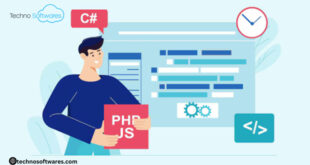There’s no doubt that the website of a web app is the real hero behind the scenes. It’s the place where most of the coding is done and in order for a web app to be successful, it has to be functional at the website.
This does not mean that the task of professionals working at the front end is quite simple. But yes it’s true that in absence of a functional website the web app will nothing more than a failure.
PHP is definitely one of the most popular programming languages used by entrepreneurs to develop the website of their web apps. Let’s look at the website trends to watch out in 2019 and what are the five top PHP frameworks that will continue to influence website development this year.
What Are The website Development Trends In 2019?
- RAIL
The website development industry has got its new acronym in the form of RAIL which stands for Response, Animation, Idle, and Load. It’s the new success mantra in the website domain. RAIL is anticipated to be the thumb rule in all website development activities in 2019.
Response: Process events in under 50 ms
Animation: Should have the ability to produce a frame in under 10 ms
Idle: Maximizing idle time
Load: Become responsive in under 5 seconds
- Accelerated Mobile Pages (AMP)
No matter in which year we are living the primary yardstick to measure an app’s performance is the speed with which it loads. In 2019 also, PHP developers that companies will hire to build their website, will use AMP for developing the website of an app so that it can take as less time as possible for loading.
- Progressive Web Apps (PWA)
PWAs will continue to be the trend for both frontend and website development of mobile apps, where mobility in healthcare especially is still increasing in popularity. Programmers will pay more attention to designing the website in accordance with the specific requirements of these apps.
Which Are The Five Best PHP Frameworks That will Continue to make an Impact website Development in 2019?
PHP definitely have several frameworks under its umbrella which are appropriate to be incorporated in the website development of mobile apps. Laravel, Symfony, Zend, Yii, and CodeIgniter are a few popular ones that are among the most discussed and debated ones. But let’s take a look at the five PHP frameworks other than the above-mentioned lot which can be suitable for website development in 2019.
a. Aura
This PHP framework is specifically used to build dynamic web apps that have the potential to perform seamlessly on both web and mobile platforms. With the help of multi-tier component development process, Aura helps to connect the client with the server. Also, this framework is known for prototyping and building highly scalable apps that can be modified in the future according to the changing market requirements.
b. Fat-Free
It’s a Micro Development Framework under the umbrella of PHP which is designed to build robust and dynamic web apps. This framework operates with the sole motive of strengthening optimum usability and user experience. Also, Fat-Free has diverse features such as support for building multilingual apps, URL router, and a cache engine.
c. CakePHP
This PHP framework is popular to make the entire app development process less tedious and lengthy. Also, it streamlines the whole process by making it quite straightforward. It’s highly flexible and convenient for programmers.
With the help of PHP7, it becomes much easier to create small and complex apps because it gives developers access to a flexible database layer and a robust scaffolding system. CakePHP is compatible with multiple PHP versions. Also, it has features such as PHP MVC Framework architecture and easy extension that makes it an ideal choice for developing the website of an app.
d. Slim
This platform is a micro PHP framework which is built to facilitate rapid development of straightforward yet strong APIs web apps. Slim has recently launched its 3.10.0 version which is known to be an efficient one. PSR – 7 HTTP message implementation, Concentric Middleware, HTTP Router, and Dependency Injection are a few features that make Slim a perfect-fit for executing website processes.
e. Phalcon
Phalcon is written in C and Zephir which acts as an integrated web server extension. This framework has the primary goal to accelerate the execution process. In comparison to other PHP frameworks, Phalcon helps to handle a greater number of HTTP requests per second as well as minimize the use of resources available.
These five PHP tools will be in great demand for website development in 2019. You can cherry-pick the appropriate one in accordance with your specific business needs and the documentation and community support the framework offers. It’s not a good idea to take a decision in rush. But it’s advisable to be calm and take your own time to decide which will be the best for your app.
Anubhuti Shrivastava is a content crafter at Arkenea and Benchpoint. She is passionate about writing articles on topics related to design and the software development industry.
 CoalesceIdeas Web and graphic design ideas for inspiration
CoalesceIdeas Web and graphic design ideas for inspiration




